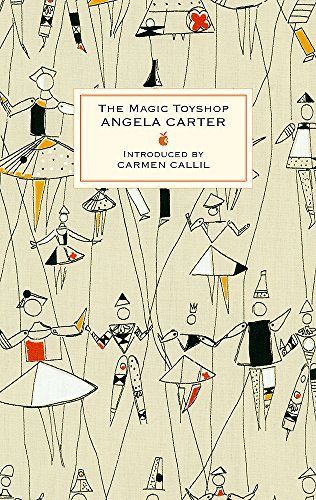
The Magic Toyshop
Cover design by Jacqueline Groag 'This crazy world whirled about her, men and women dwarfed by toys and puppets, where even the birds were mechanical and the few human figures went masked . . . She was in the night again, and the doll was herself' One night Melanie walks through the garden in her mother's wedding dress. The next morning her world is shattered. Forced to leave her rural home, she is sent to London to live with relatives she has never met: gentle Aunt Margaret, mute since her wedding day; and her brothers, Francie, whose graceful music belies his clumsy nature, and the volatile Finn. Brooding over all is Uncle Philip, who loves only the puppets he creates in his workshop, which are life-sized - and uncannily life-like.
Reviews
SYR@syaarszly
p.@softrosemint
Caellum@vdeyja
Iween Suni@iweennn
Lydia Rose@lydiareads
Kathryn@kizay
Melanie Knight@melanie42
jenny@j_jennnyy
Kei demand @kdemand
Cat Josephson@themorrigan12
Kirsty Nelson @kirstynt
edith w.@edithm
Chloe Bostick@strwbrrychlo
Shelby@yo0ntm
Infamous Millimetre@infamous_millimitre
Rebecca Bream@rebeccabream
Gabrielle Griffiths@gabri_elle
Yulianna Aparicio@yaponcedeleon
Olivia Camarena@bookishbruha
Deborah Meades@debeth
Moray Lyle McIntosh@bookish_arcadia
Gina Cordero@ginnycr
Marriel Andaya@rielreads
Ruth Parker @ruth